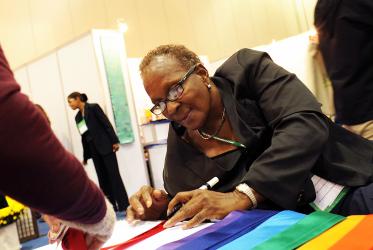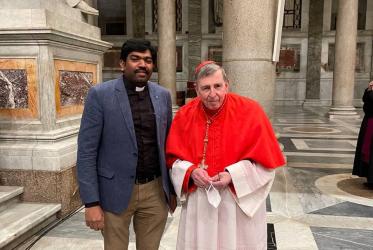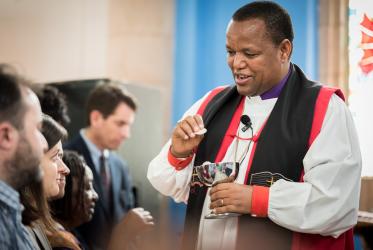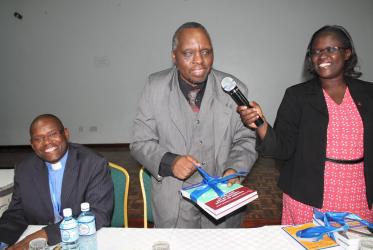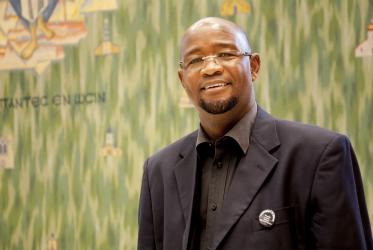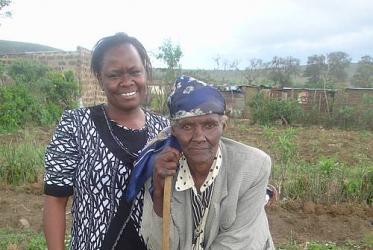Displaying 1 - 17 of 17
Towards a Global Vision of the Church Volume I
Explorations on Global Christianity and Ecclesiology, Faith and Order Paper 234
14 November 2022
Rev. Dr Hans-Ruedi Weber dies at 97
29 October 2020
#WCC70: Children in the Ecumenical Movement
20 December 2018
WCC celebrates life of Katie Cannon
16 August 2018
Dr Samuel George: “Ensure all are included"
12 June 2018
Arusha offers vibrant and colourful worship life
12 March 2018
New theological materials offer fresh perspective on disabilities
08 December 2016
Churches need to do more to tackle HIV and AIDS
23 June 2015
Fighting ignorance, fear and stigma through Bible study
09 December 2011


